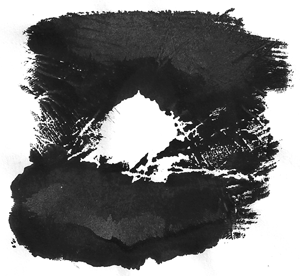Balkan Portraits: Post-Modern Roots
“BALKAN PORTRAITS: POST-MODERN ROOTS”
-RGB Balkan Arts Festival 2019
-Art Museum, Palace of Culture, Iași (27-28/6)
Curated by Andreea Foanene (Ro) and Georgia Kourkounaki (Gr).
RGB Balkan Arts Festival is the new institution concerned in mapping the contemporary artistic topography of Balkan region. The aim of the Festival is to create a network of artists and art institutions promoting creative dialogue and extraversion, as well as to investigate and archive the emerging developments in contemporary Balkan arts. The main event of the festival is an annual exhibition taking part in different Balkan locations. Nevertheless, the festival incorporates publications, workshops, network meetings, and continuous archiving activity.
The first edition of RGB Balkan Arts Festival is introduced in Iași (Art Museum, Palace of Culture) presenting the contemporary art exhibition and performance’s program “Balkan Portraits: Post-Modern Roots”. The 2019 edition investigates the multiple facets of Balkans region that have been captured by contemporary artists inspired by the field of traditional arts & crafts.
In the Balkan region, arts & crafts techniques are a common ground between different cultures. The produced objects as elements of tangible cultural heritage provide clear information about the region identity carrying out various symbolic meanings. Crafts are the bond between hand and mind, the link between everyday life and culture, the mirror of identity and the result of social practice and politics. In the age of mass-production, traditional handmade crafts and techniques have limited their presence becoming precious witnesses of our roots and raising questions about our present and our future. The traditional arts and crafts in culture become the starting point of the participant artists’ practice to investigate new aspects and forms of expression, to reveal identity issues, gender perception, contradictions in ownership and authorship.
In 2019, the RGB Balkan Art Festival organizes an itinerant exhibition that will be presented in Romania at the Palace of Culture in Iasi between 27 and 28 June and in Greece at the National Museum of Life and Ethnography of Macedonia and Thrace in Thessaloniki from 1 September to 15 September.
The official opening at the Art Museum, the Palace of Culture in Iasi, is scheduled on 27.06 at 12:00.
Participant Artists: Anna Antarti, Yorgos Drosos, Zoita Delia Călinescu, Nancy Exarhou, EN FLO artist collective (Antonakaki Sophia, Antoniou Depy, Vasileiou Vicky, Gaiti Penelope, Kavouridis Vasilis, Kampouridou Anna, Karoulia Katerina, Kondosphyris Harris, Koronaios Konstantinos, Kouzouni Mina, Manetta Evangelia, Mantziori Agapi, Minas Konstantinos, Mpampanis Thanasis, Monachou Olga, Sentzas Vasilis, Siaterli Dimitra, Tourtoura Katerina, Flegga Antonia, Christopoulou Magda. The dancing group from the Atrapos village of Florina: Angelidou Eleftheria, Antoniou Eleftheria, Antoniou Daphne, Stassini Christina, Stafanovits Vasia, Tsoutsouli Anastasia, Filippou Katerina), Evgenia Faliaridou, Konstantinos Fotiou, Galanis fashion, Dionysis Gardelis-Kaplanis, Miruna Hasegan, Vasilis Karkatselis, Harris Kondosfyris, Sofia Kyriakaki, Thodoris Lalos, Niccolò Masini, Thanasis Raptis, Yiannis Monogios, Ada Muntean, Apostolos Ntelakos, Maria Panagiotou, Pino Pandolfini, Konstantinos Pardalis, Alexandra Petranaki, Nina Prousali, Wojtek Pustola, Filip Adrian Petcu, Catalin Marius Petrișor, Thanasis Raptis, Dimitra Siaterli, Georgia Stamenov Vera Siaterli, Yannis Stamenitis, Nikos Terzis, Anca Szönyi Thomas, Tajó, Elli Vuorinen, Mairi Tsiroukidou.
This project is supported by the Goethe-Institut and the Project Fund of the Cultural Management Academy in Sofia, Bucharest, Thessaloniki, and Sarajevo.
Partners: Palace of culture in Iași; Folk Art and Ethnological Museum of Macedonia and Thrace in Thessaloniki; Sturdza Castle at Miclăușeni; The Palace of Culture Târgu Mureș; European University in Tirana, Albania; Photography Center of Thessaloniki; Jewish Museum in Bucharest; ArtStoria; Stefan Jäger Museum in Jimbolia; GEYC, Avant Post; STUP; BCUT; Art Touching.


